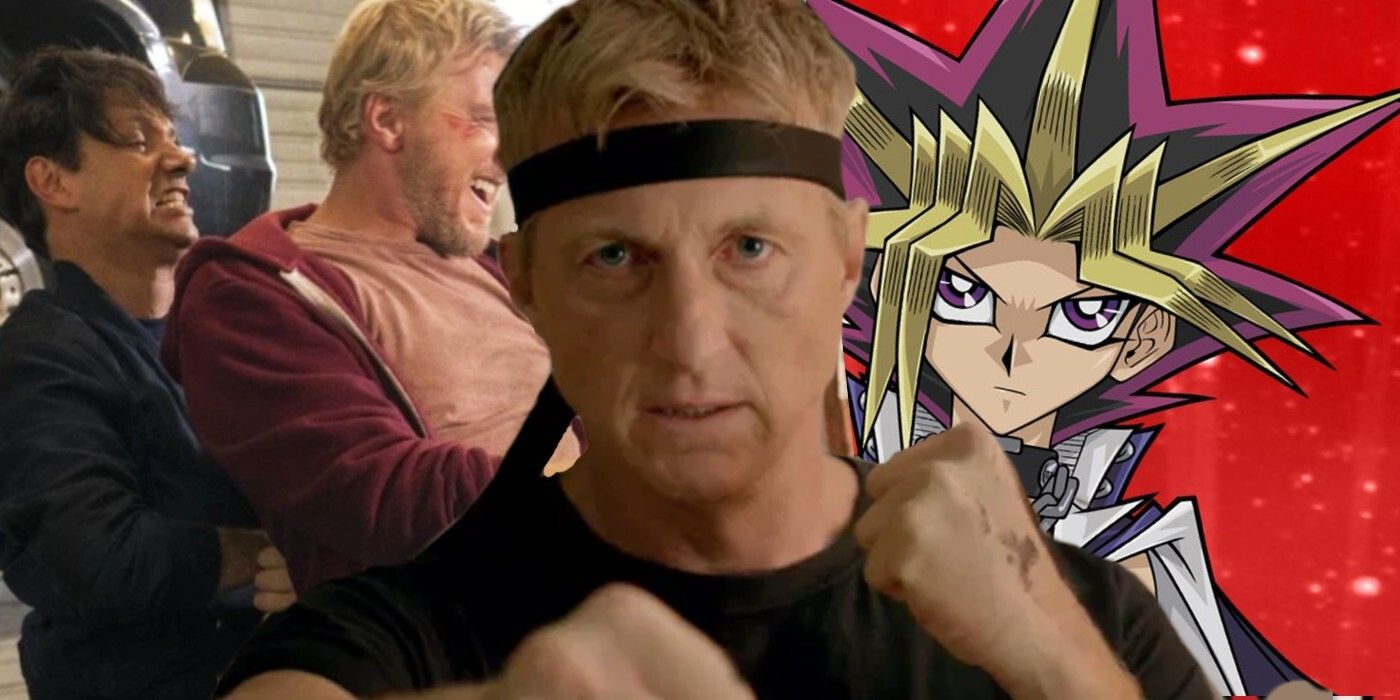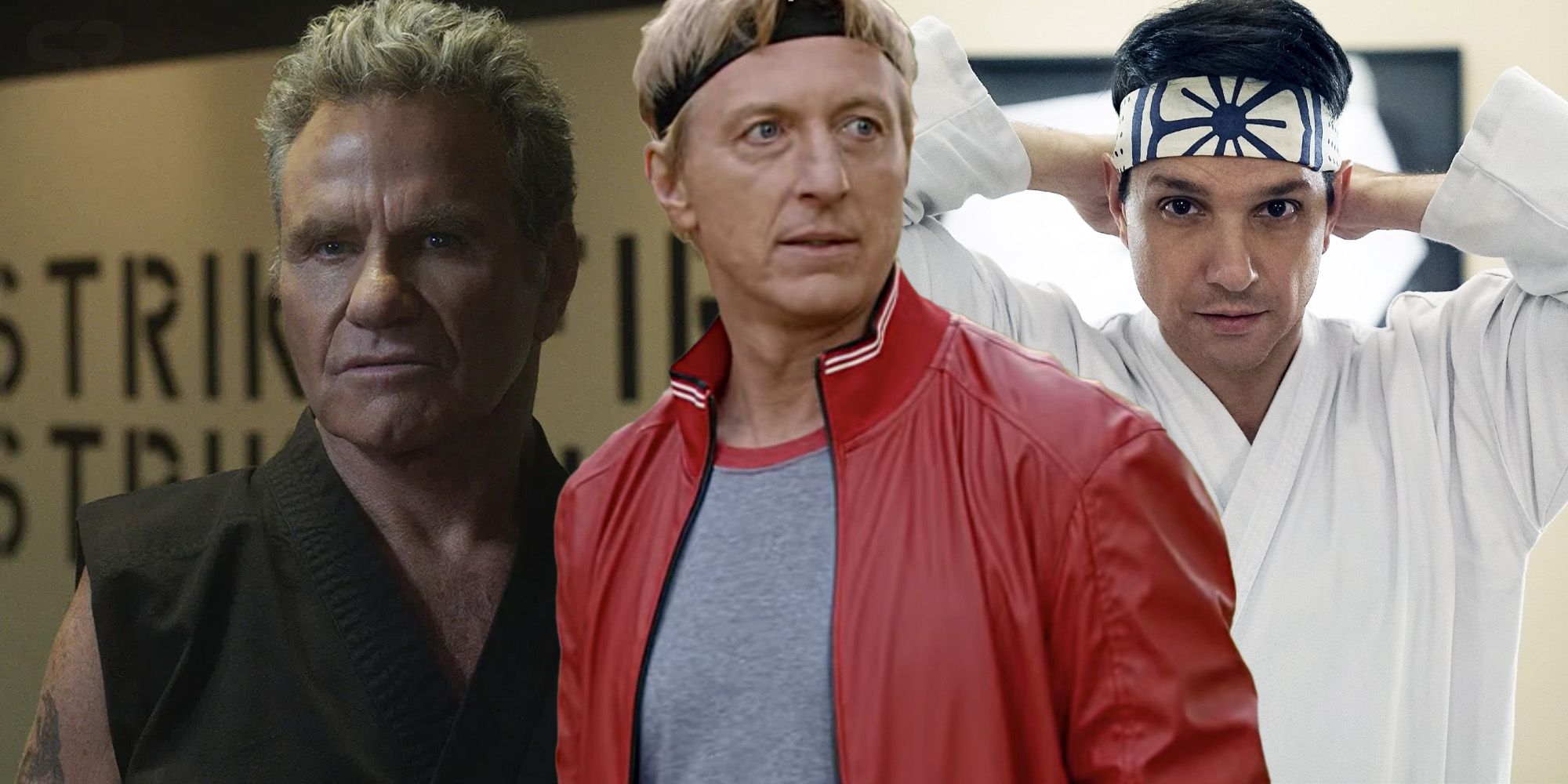Cobra Kai is becoming increasingly like Yu-Gi-Oh! — which is a mistake for the popular Netflix series. The Karate Kid spin-off show has become a huge hit after moving to Netflix from YouTube Premium, balancing fun action with a compelling, grounded emotional story of redemption and self-realization. Cobra Kai season 3 takes the show’s action and drama to new heights — but in doing so, shifts closer to animes like Yu-Gi-Oh! by making karate the answer for every problem and story thread.
Yu-Gi-Oh! takes place in a world that in many ways resembles the real world. The story is set on modern-day Earth, with most technology and locations mirroring real life. The main differences of course are Yu-Gi-Oh!’s mystical elements that invoke ancient Egyptian mythology, and the fact that every aspect of life centers around a children’s card game. In the Yu-Gi-Oh! anime, playing the card game (called “Duel Monsters”) isn’t just a hobby: It’s the primary sport, skill, and profession of the world. Business deals, terrorist attacks, boarding school exams, personal grudges – all of these and more are settled not by laws or more practical conventions, but by playing cards.
And in Yu-Gi-Oh! that works perfectly well. Other anime like Pokémon, Bakugan and Beyblade all work off the same basic principle – there is an abstract form of competition that supersedes all other conventions in the world. These shows begin with that premise and carry it through until the end, maintaining a healthy suspension of disbelief by firmly establishing their own odd but interesting rules. A show like Cobra Kai however, which began primarily as a (relatively) grounded personal drama about redemption and growing up, does not work on this principle. Unfortunately, that’s exactly what the show has started trying to do with karate.
In the first two seasons of Cobra Kai, the karate mostly took a backseat to the drama. Fights only happened in competition or out of personal disputes, most of which ended relatively peacefully. The school brawl at the end of season 2 is certainly a bit more extreme, but it works because the horrible result of Miguel entering a coma is played as an accident in a heated moment, not something that was planned out. Season 3 takes things too far though, turning karate into the Duel Monsters of the Cobra Kai universe. Suddenly, karate isn’t just for karate – it’s the de facto solution to every problem. Robby goes on the run from the police? Beat up some chop shop thugs with karate. Gross landlord making deployable passes at an underage girl? Threaten him with karate. Trying to stop literal murderer and terrifying madman Kreese from endangering the lives of children? Settle it at the karate tournament, not the court system. Even the school parent-teacher meeting following the school brawl was focused on one thing: karate.
While this more fantastical karate-centric story is less believable, it’s certainly a fun ride. Most of the character arcs in season 3, like Hawk’s redemption and Johnny’s reconciliation with Daniel, still play at a more grounded level, and all the fighting is at least fun to watch. But as the show goes deeper down this Yu-Gi-Oh! hole, it should be careful not to become too fantastical. Cobra Kai has found success because of both its fun, soapy action and the engaging stories of its various characters, and that balance may begin to tip if karate keeps being the answer for everything in the world.


